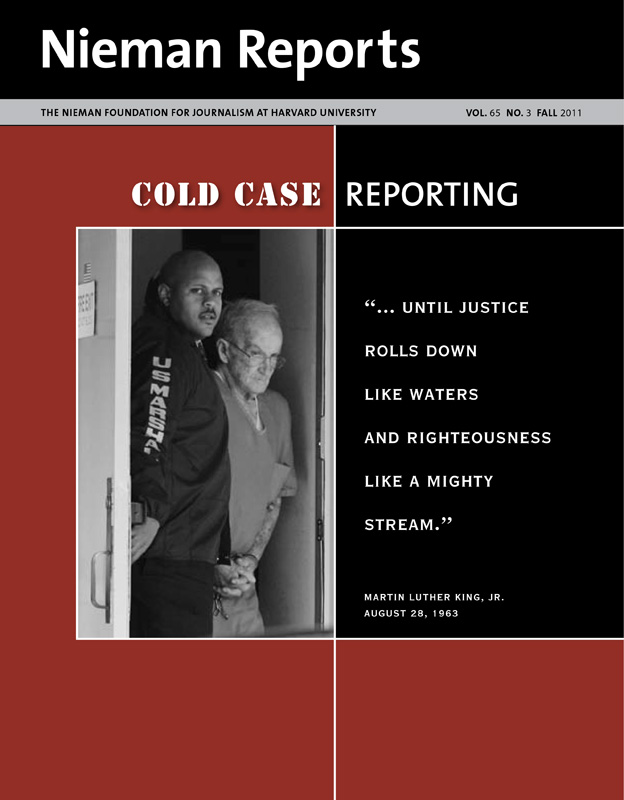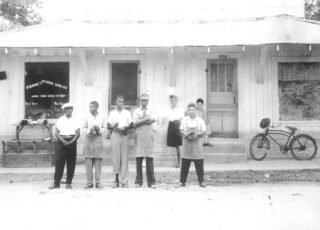ISSUE
Fall 2011

Cold Case Reporting
Cases unheard. Justice denied. These words fit many crimes committed with racial intent a half century ago. Now reporters burrow into forgotten files, locate witnesses, track down suspects, publish what they find—and write for us about their work that in some cases is resulting in justice finally being served. Journalists then explore how stories about black America are told today. Next, our focus turns to news reporting in a time of revolutionary change in Arab nations. Intriguing essays then transport us from Iran to Indonesia, from financial collapse to consensus building, from envisioning computers replacing journalists to reporting from war’s frontlines.
